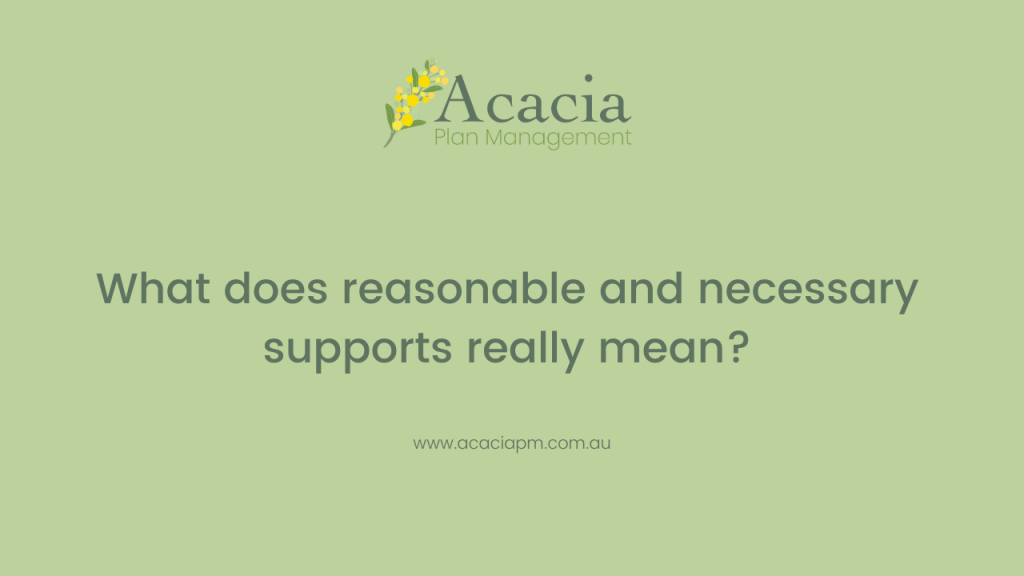The more time you spend getting to know the ins and outs of the NDIS and your funding, the more times you’re likely to come across the phrase ‘reasonable and necessary’. What does this mean and how does it affect your NDIS funding and supports?
In simple terms, reasonable is defined as something fair and necessary is something you need because of your disability. Reasonable and necessary is the basis for how the NDIS determines which of your supports will be funded and included in your plan.
So, what are considered reasonable and necessary supports?
The NDIS will fund “reasonable and necessary supports” relating to your disability to help you live an ordinary life and achieve your goals.
While these terms are open to interpretation and assessed on a case by case basis, there are very specific criteria that must be met before it is approved. In summary, the supports need to be:
- related to your disability and support needs
- good value for money
- likely to be effective and beneficial to you.
Your NDIS Planner will also consider the unpaid, informal supports you receive from family, friends and your broader support workers, networks and community.
While it may seem like a loose framework for decision making, it is fairly straightforward. Read further to get a better understanding of the criteria NDIS sets for determining reasonable and necessary supports.
How does the NDIS assess supports as reasonable and necessary?
For a support to be reasonable and necessary, the NDIS Act states that it must:
- Help you achieve the goals and aspirations you identified in your NDIS plan
- Get you more connected to your community; either socially or economically
- Represent tangible value for money; particularly if it’s priced above the NDIS price guide
- Use established, science-based methods and be likely to provide a real benefit
- Not serve as a stand-in for what should reasonably be provided by other parties, such as family members, carers or the community
- Not fund a support that could be funded by another, more appropriate method, such as another Government body.
If each of these six criteria are met, the support is deemed to be reasonable and necessary and should be approved for funding under the NDIS. You can use these six criteria to help justify the funding of a support for your specific situation.
What things aren’t considered reasonable and necessary?
Your NDIS funding won’t cover everyday living expenses that people without disability would be required to pay, such as gym memberships, rent, groceries, mobile phones or tickets to a movie or concert. If you feel that an item that is normally considered a personal/mainstream expense is reasonable and necessary, you can contact your NDIS representative with supporting documentation to receive special approval.
Our team at Acacia Plan Management is on hand to assist you and explain how the criteria works in your situation. Contact our friendly team today on 1300 MYPLAN.





